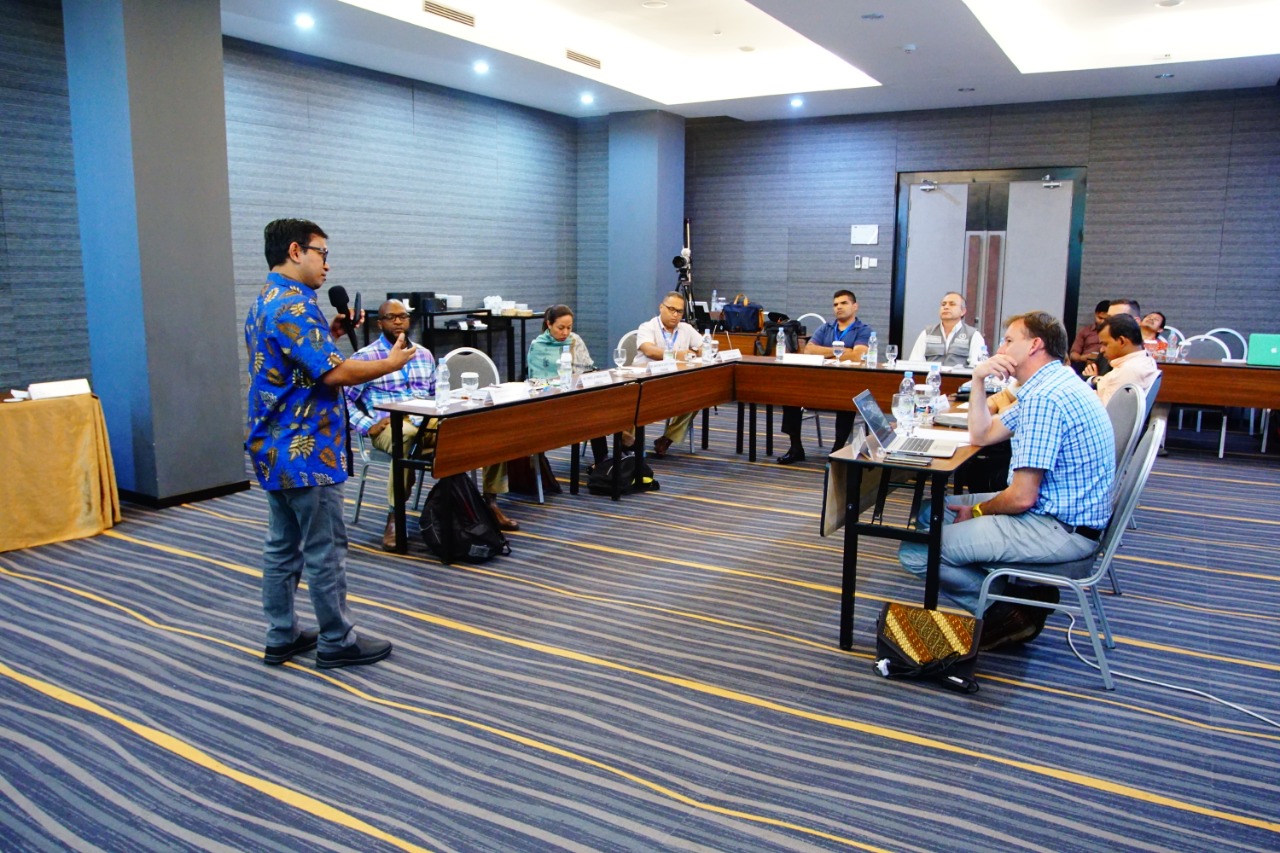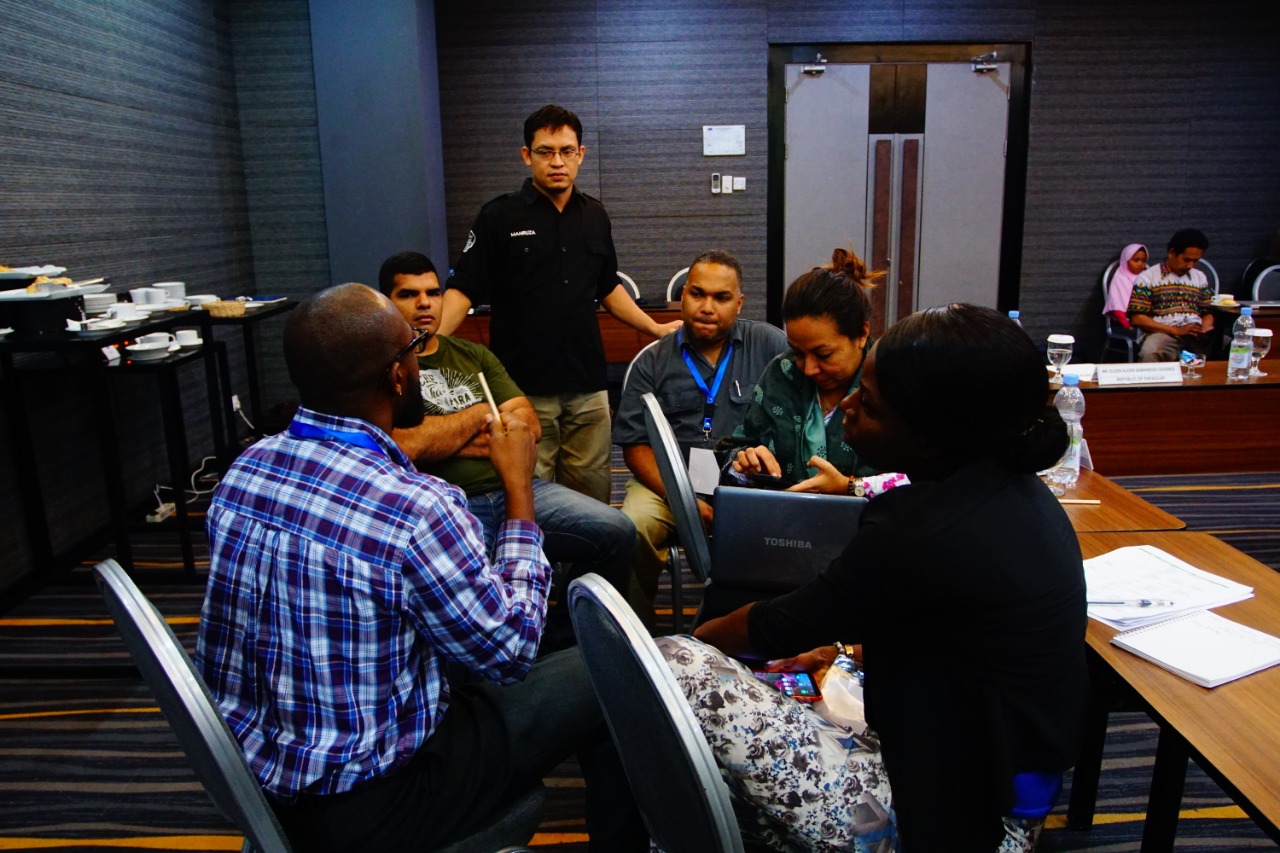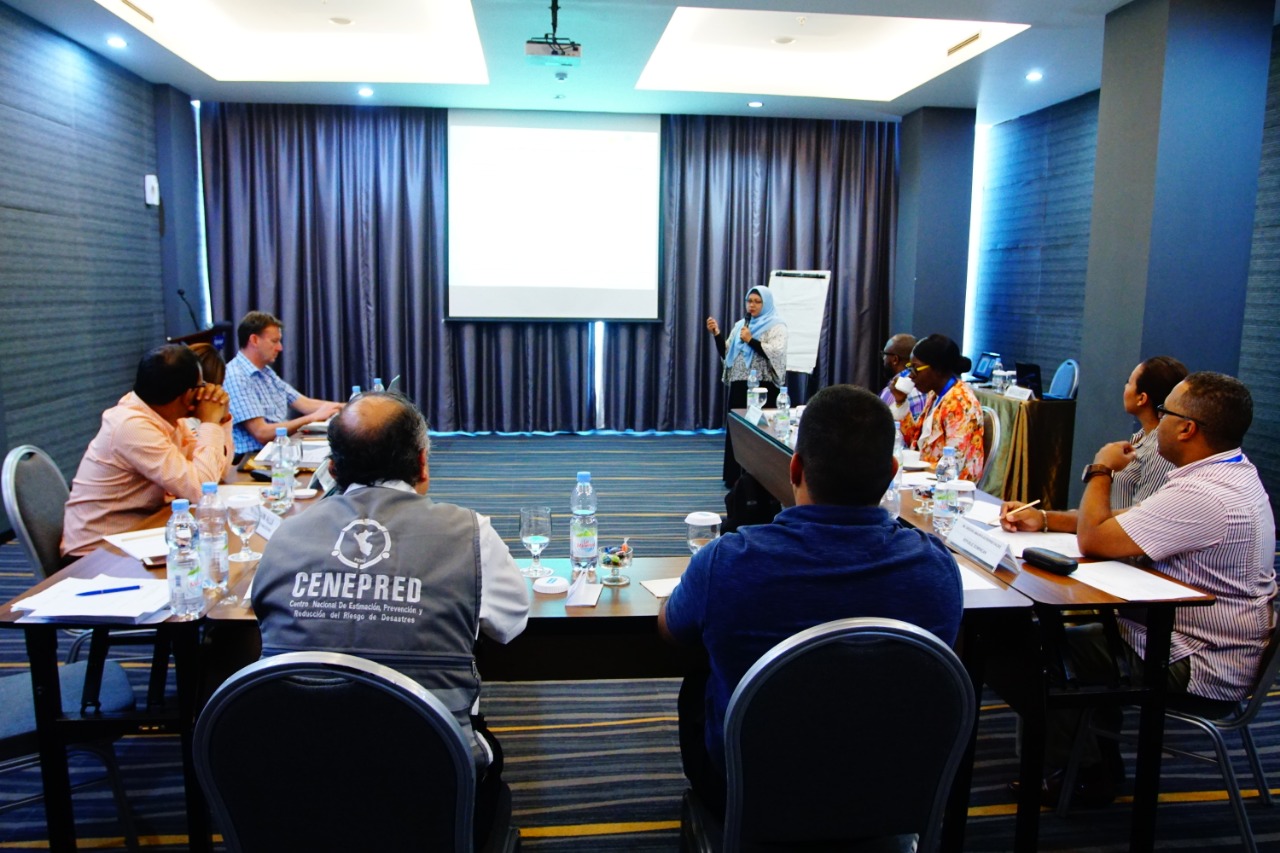Strengthening Capacity in Disaster Risk Management for Countries in Latin America, Europe and the Caribbean
Building resilience, securing a better future
Challenges
According to the 2016?World Disasters Report by the International Federation of Red Cross and Red Crescent Societies, for the period?2006–2015, there were 6,090?recorded natural disasters. They impacted over 1.5?billion lives; approximately 144?million people were displaced and lost their homes, 1.4?million were killed, and there was an estimated financial loss of approximately US$1.3?trillion. The devastating impacts of disasters have raised the urgency and concern of every stakeholder to formulate a mitigation and management strategy in order to overcome this challenge. The global commitment to finding a solution was reiterated in the 2030?Agenda for Sustainable Development and the Sendai Framework for Disaster Risk Reduction?2015–2030, which serve as the basis for an international collaborative approach to achieving sustainable development through disaster risk reduction and management. As the responsibility to build better resilience is acknowledged as a common responsibility, there must be an exchange of knowledge and capacity-building to ensure that every nation is prepared in the wake of a disaster.
Towards a Solution
The Ministry of Foreign Affairs of Indonesia, in collaboration with the Tsunami and Disaster Mitigation Research Centre?(TDMRC) established by Syiah Kuala University, convened the ‘International Workshop on Disaster Risk Management for Europe, America and the Caribbean Countries’ in Banda Aceh, Indonesia from 26?June to 5?July?2019. The goal of the training was to support the implementation of the Sendai Framework in improving disaster risk management and mitigation efforts within the framework of global sustainable development.
The training programme was attended by 10?participants from countries in Europe, Latin America and the Caribbean: Antigua and Barbuda, Chile, Colombia, Costa Rica, Dominica, Jamaica, North Macedonia, Panama, Paraguay and Peru. Most of the participants were officials and stakeholders in disaster management sectors.
The training was delivered by experts from the TDMRC using several methodological approaches, including classroom activities, interactive discussions, individual and group practice and field visits. Materials on disaster risk management within this training programme covered a basic understanding and the benefits of disaster risk management, mitigation and post-disaster recovery policies.
The participants were introduced to the disaster management approach employed by Indonesia, based on previous study cases in which the Government integrated disaster risk mapping into spatial planning and disaster management planning for districts and provinces. They were also presented with an overview of the Government’s policy framework on post-disaster recovery, rehabilitation and reconstruction, as well as a community approach to redevelopment.
The participants were equipped with a training module to learn about the challenges and objectives of disaster risk management, particularly with regard to major disasters. To fully comprehend the mechanisms of disaster risk management policy, they were given materials on the typology of natural hazards and their impacts, with a focus on the impacts and treatment of geological and hydrometeorological hazards.
Module training on enhancing community resilience was also provided to highlight the importance of including grass-roots communities and civil society organizations in formulating a comprehensive disaster management strategy. This module also emphasized the importance of giving consideration to local knowledge in order to ensure a holistic disaster management strategy and to mitigate disaster risk.
The participants also learned about the supporting aspects of disaster management policy, which include disaster risk communication skills to inform the public about disasters in a coherent, reassuring and composed manner. Discussions also covered disaster risk financing and insurance, as well as the inclusion of disaster risk management within the framework of fiscal policy. Participants visited several sites to enhance their knowledge of disaster management through first-hand experiences.
At the end of the training, participants presented an action plan and policy recommendations to be implemented in their respective countries. Some highlights of the training programme include the importance of local knowledge regarding the history of disasters in certain areas, the inclusion of grass-roots communities in disaster management policy, the collection of data and records on disasters in every region to map and analyse risk and exposure, and strong coordination among central and regional governments and other relevant institutions.
The participants implemented the knowledge and lessons learned from the training in their respective countries to develop training materials in order to improve their countries’ disaster mitigation policy and to inform the development of new frameworks for disaster risk management policy. This training was especially valuable for countries from Latin America and the Caribbean, as Jamaica will host the seventh Regional Platform for Disaster Risk Reduction in the Americas and the Caribbean in?2020.
This initiative contributed to the achievement of Sustainable Development Goal?17 on partnerships and Goal?1 on poverty.
Contact Information
Name: Mr. Mohammad Syarif Alatas Title: Director for Technical Cooperation Organization: Ministry of Foreign Affairs, Indonesia
Countries involved
Antigua and Barbuda, Chile, Colombia, Costa Rica, Dominican Republic, Jamaica, North Macedonia, Panama, Paraguay, Peru
Nominated By
Ministry of Foreign Affairs of the Republic of Indonesia
Supported By
Syiah Kuala University, Indonesia
Implementing Entities
Ministry of Foreign Affairs, Indonesia
Project Status
Completed
Project Period
6/2019 - 7/2019
URL of the practice
https://kemlu.go.id/portal/i/read/410/berita/indonesia-berikan-kapasitas-pengelolaan-kebencanaan-ke-negara-negara-amerika-dan-eropaPrimary SDG
17 - Partnerships for the Goals
Secondary SDGs
01 - No Poverty, 03 - Good Health and Well-being
Similar Solutions











